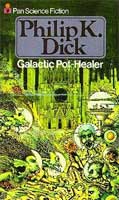Connections Week (#5): Alien Lanes

1. On Monday at the library, before finishing The City of Gold and Lead, I picked up the latest Virginia Quarterly Review. (The VQR, alas, beat out The Believer this year to snag a National Magazine Award in the general excellence category.) I read some of Tom Bissell's very- good-seeming piece about Robert D. Kaplan, made a mental note of various other interesting offerings (Alice Munro, Charles Simic, James Ellroy, et al.).
I didn't think Brock Clarke's piece on the death or non-death of the novel would be up my alley—that is, I'm sure it was fine, but as a reader, I'm just not in the market for those sorts of pieces these days. (Because: I say unto you that the novel is alive!)
Anyway, I skimmed it a bit, saw that he discussed Tom Wolfe (naturally) and the "Billion- Footed Beast" and so forth. Then it took an interesting turn—by championing post-9-11 novels that "have not pretended to capture or make sense of our era, which is precisely why they’re worthy and why we should read them."
At the very top of this heap is Believer goddess Heidi Julavits's 2003 novel, The Effect of Living Backwards.
2. He devotes quite a bit of space to it, and quotes a great scene in which narrator Alice "is asked to speak with a hostage negotiator who 'pretends to speak only in Sasak,' a language Alice also speaks, but not well":
“Snamo?” a voice said. “Gno mnabo nay?”
“Snamo,” I responded.
“Gno mnabo nay?” the man repeated. . . .
“I am Alice,” I replied. My Sasak, never exemplary, was pretty rusty. “We have been hijacked.”
There was a pause.
“Your Sasak is barely adequate. . . .”
“My apologies,” I said, disconcerted, “it’s been a few years.” (Literally I said, “Look away from this sorry girl, many years until Sasak talking.”) “Barely adequate” was a more than polite assessment. My Sasak sucked.
* * *
“And yourself, Alice, you are well?”
“I am a wallet head of exuberance,” I told him in Sasak.
3.
This cracked me up and brought to mind something in Philip K. Dick's Galactic Pot-Healer (a very enjoyable book with a very bad—or do I mean great?—title). In this bit, one of the odd-looking aliens is trying to tell a joke to the rather uncosmopolitan earthling, Joe:
The humor isn't in the joke but in the failure of the joke.
"Here's one they're telling on Deneb four," the bivalve said. "A freb whom we'll call A is trying to sell a glank for fifty thousand burfles."
"What's a freb?" Joe asked.
"A kind of—" The bivalve undulated with effort. "A sort of idiot.
"What's a burfle?"
"A monetary unit, like a crumble or a ruble. Anyhow, someone says to the freb, 'Do you really expect to get fifty thousand burfles for your glank?"
"What's a glank?" Joe asked.
Again the bivalve undulated; this time it turned bright pink with effort. "A pet, a valueless lower life-form. Anyhow, the freb says, 'I got my price.' 'You got your price?' the interrogator interrogates. 'Really?' 'Sure,' the freb says. 'I traded it for two twenty-five-thousand burfle pidnids.'"
"What's a pidnid?"
The bivalve gave up; it slammed its shell shut and withdrew in privacy and silence.

4.
Breaking off this reverie, I turned to the book at hand—the aforementioned City of Gold and Lead. Soon enough I arrived at this passage, in which Fritz, our narrator's comrade (and fellow infiltrator of the City of the Tripods), mentions how his alien Master's speech sometimes turns completely opaque.
"He has to use their words when he talks about his work because there are no human words for the things he is telling me about. A few days ago he was saying that he was feeling unhappy because during the zootleboot a tsutsu went into spiwis, and therefore it was not possible to rzdool the shuchutu. At least, it sounded something like that . . . "
5.
These humorous asides are actually dangerous: They point out the false colors under which much speculative fiction—of necessity—sails.
If books like Dune and Watership Down provide glossaries of their respective worlds' invented languages, why aren't they written entirely in those languages? (It's a different story with something like A Clockwork Orange or Riddley Walker, in which the hobgoblin tongues are indeed used to tell the tale.)
In Miami Vice, why do the drug dealers at a certain point just start using English with each other, even though early scenes have them speaking in subtitled Spanish? (Cormac McCarthy doesn't translate the Spanish speech in his novels—which can lead to confusion.)
6.
Coda: From Don DeLillo's sci-fi-tinged mathematical odyssey Ratner's Star:
Mainwaring edged his way to Billy's side.
"We used zorgs," he whispered"
"For what?"
"Identifying the mohole."
"Zorgs are useless."
"We used them," Mainwaring said.
"Practically nobody knows what they even are."
"Softly knows, doesn't he?"
"He's one of the few."
"Softly explained how we might use zorgs. I briefed my sylphing teams. Without zorgs we would never have found the mohole."
"Amazement."
"Except Softly wanted us to use them in tracking back the signal. But we didn't need them for that. We needed them for the mohole."


2 Comments:
One of my brothers once went on a sort of existential road trip looking for a place where he could buy some land and build a shack to retire from humanity (that sort of thing, anyway, not sure he'd have put it in those words). Amazingly he found himself in Bivalve, New Jersey! He said he really was seriously tempted to get a little bit of land and a trailer, only it's scarily the kind of place where once you're off the main drag it's all, like, scary fundamentalist Christian shack communities & such. But isn't that a charming name for a town?
p.s. The next town over is called Shellpile. You guessed it--it was the home of the clam processing plant....
!!
Are these by any chance near "Neptune, NJ"?
I wonder if they've heard of GALACTIC POT-HEALER...
Post a Comment
<< Home